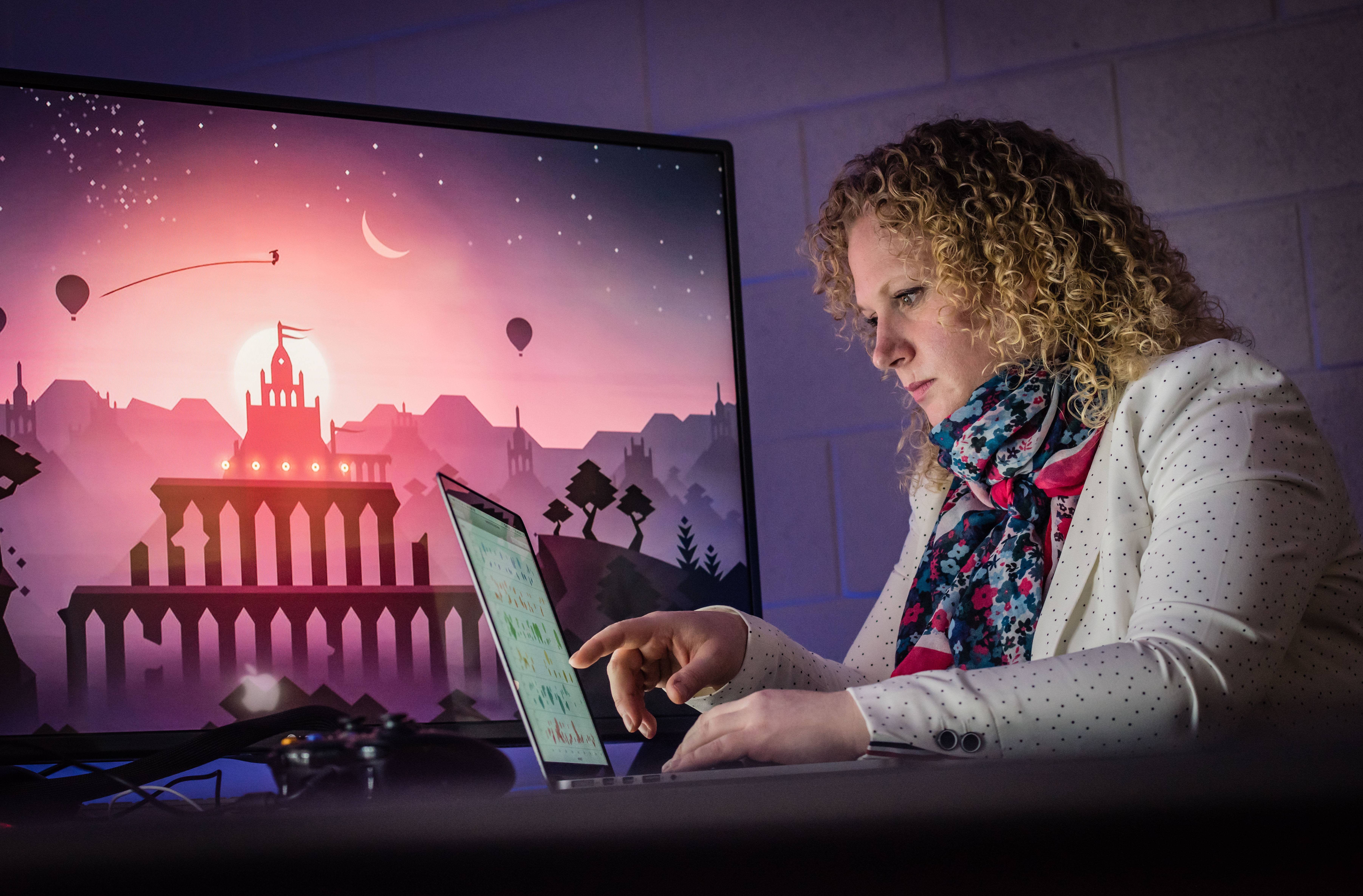
U of S computer scientist awarded Steacie Fellowship
SASKATOON ¬– University of Saskatchewan (U of S) computer science professor Regan Mandryk, whose ground-breaking research involves developing digital game technology to assess mental health, has been awarded one of Canada’s highest honours for young scientists.
Mandryk is among six university researchers across Canada who will be awarded a prestigious E.W.R. Steacie Memorial Fellowship by the Natural Sciences and Engineering Research Council of Canada (NSERC) this evening at the council’s awards ceremony at Rideau Hall in Ottawa.
“Steacie Fellowships are awarded to outstanding and highly promising university faculty who are earning a strong international reputation for original research,” said U of S Vice-President Research Karen Chad.
“Regan’s innovative, globally relevant research into new gaming technology will advance mental health and motivate our young computer scientists to reach even higher.”
Mandryk will be awarded $250,000 over two years to advance her research, enabling her to devote time and energy entirely to the work. In addition, the fellowship will provide the U of S up to $90,000 a year for a replacement to perform her teaching and administrative duties for the duration.
“Having two years to focus solely on my research is extraordinary,” said Mandryk. “I get a lot of job satisfaction from training my graduate students to do excellent research, and the Steacie provides an exciting opportunity to concentrate on doing just that.”
Working with industry partners such as gaming giant Electronic Arts, Mandryk has done pioneering work in using elements of digital games to design interventions in both physical and mental health.
For instance, she has designed digital “exergames” that incorporate physical activity. She also has developed a system that uses off-the-shelf commercial digital games to help children with Fetal Alcohol Spectrum Disorder improve focus and attention related to better behaviour and sleep.
Mandryk said for the past couple of years she has moved away from designing games for physical health to designing games for mental health because this area provides more opportunities for effective intervention. Further, she is looking beyond designing games geared at treatment to performing digitally based mental health assessments.
“There’s potential for changing the lives of a lot more people by using game-based data to assess mental health issues such as anxiety and depression in an ongoing way,” she said.
During the fellowship she will be working with many of her 15 graduate students on the project and has hired a third-year computer science student as an intern to support the research. As well, she has collaborators around the world who will help in areas such as clinical psychology, game design and player assessment.
Her research involves two complementary approaches. The first is to develop and use games designed especially for mental health assessments. These games are designed in a way that players’ choices or actions mirror basic cognitive processes or executive functions that involve mental control and self-regulation.
“In isolation, a task doesn’t indicate much, but a lot of tasks placed together in a game can provide data you can combine and use with computational modelling techniques to provide an assessment about the players,” Mandryk said.
The second approach involves having access to big data from thousands of people playing commercial games. Players will be recruited though tools such as Amazon Mechanical Turk that find participants for online studies, and by seeking participants on gamer forums.
By tracking players’ natural game interactions such as play times, in-game choices and typing patterns, studying stress metrics derived from processing speech signals, and using webcam observations of facial expressions and even heart rates, she plans to create a predictive model of mental health decline.
“Those are the two things I’m trying to make progress on over the next couple of years that I haven’t had the time or the resources to pursue at this scale,” she said.
“There’s so much potential benefit. Not only can we assess a large number of people, but by using games we can also assess the mental health of people at much lower ages, like young children and in geographically remote areas, which is an important consideration for Canadians.”
—30—
For more information, contact:
Jennifer ThomaMedia Relations Specialist
University of Saskatchewan
306-966-1851
jennifer.thoma@usask.ca

